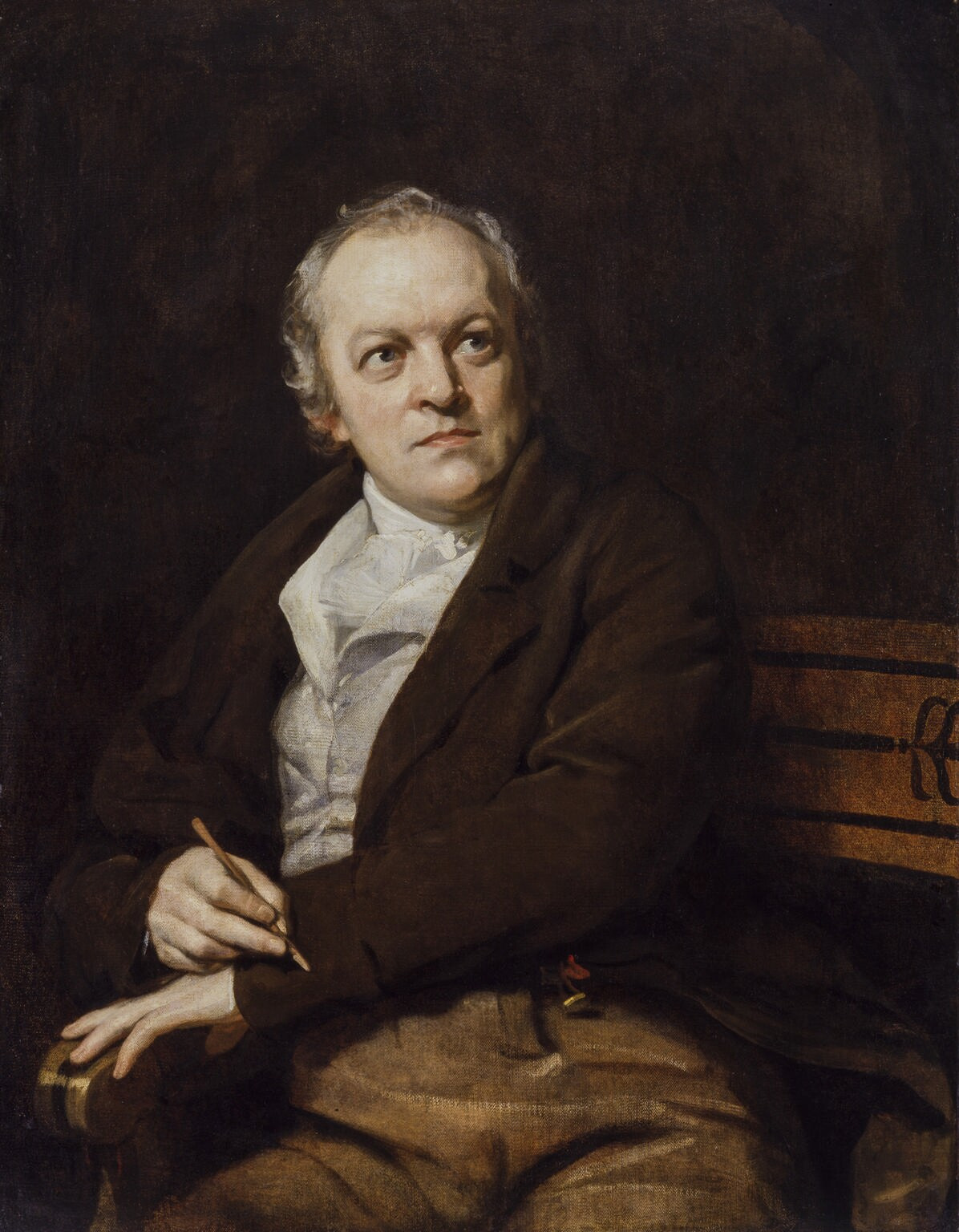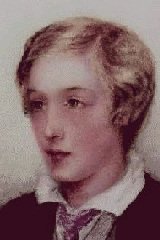|
Organic Form
In romantic literature, a work has organic form if the structure has originated from the materials and subjects used by the author. Using the organic metaphor, the structure is seen to grow as a plant. It stands in contrast to a mechanical form, a work which has been produced in accordance with artificial rules. The lack of rules in Shakespeare's works led some critics to claim that they lacked form; Samuel Taylor Coleridge leapt to his defence with the concept of organic form. Overview Coleridge, an English poet, philosopher, literary critic, and founder of the Romantic movement, suggested that the concept of organic form meant that a poem or literary piece was shaped, rather than structured, from within. The use of the form allowed a piece to uniquely develop itself as it unfolded, and ultimately revealed an emphasis on the whole outcome of the piece, including the connections of each development to each other. In contrast to the more mechanical processes and rules which many ... [...More Info...] [...Related Items...] OR: [Wikipedia] [Google] [Baidu] |
Romantic Literature
In literature, Romanticism found recurrent themes in the evocation or criticism of the past, the cult of "sensibility" with its emphasis on women and children, the isolation of the artist or narrator, and respect for nature. Furthermore, several romantic authors, such as Edgar Allan Poe, Charles Maturin and Nathaniel Hawthorne, based their writings on the supernatural/occult and human psychology. Romanticism tended to regard satire as something unworthy of serious attention, a view still influential today. The Romantic movement in literature was preceded by the Enlightenment and succeeded by Realism. Some authors cite 16th-century poet Isabella di Morra as an early precursor of Romantic literature. Her lyrics covering themes of isolation and loneliness, which reflected the tragic events of her life, are considered "an impressive prefigurement of Romanticism", differing from the Petrarchist fashion of the time based on the philosophy of love. The precursors of Romanticism in E ... [...More Info...] [...Related Items...] OR: [Wikipedia] [Google] [Baidu] |
Samuel Taylor Coleridge
Samuel Taylor Coleridge ( ; 21 October 177225 July 1834) was an English poet, literary critic, philosopher, and theologian who was a founder of the Romantic Movement in England and a member of the Lake Poets with his friend William Wordsworth. He also shared volumes and collaborated with Charles Lamb, Robert Southey, and Charles Lloyd (poet), Charles Lloyd. He wrote the poems ''The Rime of the Ancient Mariner'' and "Kubla Khan", as well as the major prose work ''Biographia Literaria''. His critical works were highly influential, especially in relation to William Shakespeare, and he helped introduce German idealist philosophy to English-speaking cultures. Coleridge coined many familiar words and phrases, including "suspension of disbelief". He had a major influence on Ralph Waldo Emerson and American transcendentalism. Throughout his adult life, Coleridge had crippling bouts of anxiety and depression; it has been speculated that he had bipolar disorder, which had not been defin ... [...More Info...] [...Related Items...] OR: [Wikipedia] [Google] [Baidu] |
Romantic Literature In English
Romanticism was an artistic, literary, and intellectual movement that originated in Europe toward the end of the 18th century. Scholars regard the publishing of William Wordsworth's and Samuel Coleridge's '' Lyrical Ballads'' in 1798 as probably the beginning of the movement in England, and the Coronation of Queen Victoria in 1837 as its end. Romanticism arrived in other parts of the English-speaking world later; in the United States, about 1820. The Romantic period was one of social change in England because of the depopulation of the countryside and the rapid growth of overcrowded industrial cities between 1798 and 1832. The movement of so many people in England was the result of two forces: the Agricultural Revolution, which involved enclosures that drove workers and their families off the land; and the Industrial Revolution, which provided jobs "in the factories and mills, operated by machines driven by steam-power". Indeed, Romanticism may be seen in part as a reaction to th ... [...More Info...] [...Related Items...] OR: [Wikipedia] [Google] [Baidu] |
Physiognomy
Physiognomy () or face reading is the practice of assessing a person's character or personality from their outer appearance—especially the face. The term can also refer to the general appearance of a person, object, or terrain without reference to its implied characteristics—as in the physiognomy of an individual plant (see plant life-form) or of a plant Community (ecology), community (see vegetation). Physiognomy as a practice meets the contemporary definition of pseudoscience and is regarded as such by academics because of its unsupported claims; popular belief in the practice of physiognomy is nonetheless still widespread and modern advances in artificial intelligence have sparked renewed interest in the field of study. The practice was well-accepted by Greek philosophy, ancient Greek philosophers, but fell into disrepute in the 16th century while practised by vagabonds and Charlatan, mountebanks. It revived and was popularised by Johann Kaspar Lavater, before falling from ... [...More Info...] [...Related Items...] OR: [Wikipedia] [Google] [Baidu] |
Gerard Manley Hopkins
Gerard Manley Hopkins (28 July 1844 – 8 June 1889) was an English poet and Society of Jesus, Jesuit priest, whose posthumous fame places him among the leading English poets. His Prosody (linguistics), prosody – notably his concept of sprung rhythm – established him as an innovator, as did his praise of God through vivid use of Imagery (literature), imagery and nature. Only after his death did Robert Bridges publish a few of Hopkins's mature poems in anthologies, hoping to prepare for wider acceptance of his style. By 1930 Hopkins's work was seen as one of the most original literary advances of his century. It intrigued such leading 20th-century poets as T. S. Eliot, Dylan Thomas, W. H. Auden, Stephen Spender and Cecil Day-Lewis. Early life and family Gerard Manley Hopkins was born in Stratford, London, Stratford, South Essex (UK Parliament constituency), EssexGardner, W. H. (1963), ''Gerard Manley Hopkins: Poems and Prose'' Penguin, p. xvi. (now in Greater London), as the ... [...More Info...] [...Related Items...] OR: [Wikipedia] [Google] [Baidu] |
Victorian Era
In the history of the United Kingdom and the British Empire, the Victorian era was the reign of Queen Victoria, from 20 June 1837 until her death on 22 January 1901. Slightly different definitions are sometimes used. The era followed the Georgian era and preceded the Edwardian era, and its later half overlaps with the first part of the ''Belle Époque'' era of continental Europe. Various liberalising political reforms took place in the UK, including expanding the electoral franchise. The Great Famine (Ireland), Great Famine caused mass death in Ireland early in the period. The British Empire had relatively peaceful relations with the other great powers. It participated in various military conflicts mainly against minor powers. The British Empire expanded during this period and was the predominant power in the world. Victorian society valued a high standard of personal conduct across all sections of society. The Victorian morality, emphasis on morality gave impetus to soc ... [...More Info...] [...Related Items...] OR: [Wikipedia] [Google] [Baidu] |
Inscape
Inscape and instress are complementary and enigmatic concepts about individuality and uniqueness derived by the poet Gerard Manley Hopkins from the ideas of the medieval philosopher Duns Scotus.Chevigny, Bell Gale. Instress and Devotion in the Poetry of Gerard Manley Hopkins ''Victorian Studies'' Vol. 9, No. 2 (Dec., 1965), pp. 141–153. Inscape has been rendered variously as: external design, aesthetic conception, intrinsic beauty, the intrinsic form of a thing, a form perceived in nature, the individual self, the expression of the inner core of individuality, the peculiar inner nature of things and persons, expressed in form and gesture, and an essence or identity embodied in a thing. These twin concepts are what his most famous poems are about. __NOTOC__ [Hopkins] felt that everything in the universe was characterized by what he called ''inscape'', the distinctive design that constitutes individual identity. This identity is not static but dynamic. Each being in the universe ' ... [...More Info...] [...Related Items...] OR: [Wikipedia] [Google] [Baidu] |
Denise Levertov
Priscilla Denise Levertov (24 October 1923 – 20 December 1997) was a British-born naturalised American poet. She was heavily influenced by the Black Mountain poets and by the political context of the Vietnam War, which she explored in her poetry book ''The Freeing of the Dust''. She was a recipient of the Lannan Literary Award for Poetry. Early life and influences Levertov was born and grew up in Ilford, Essex, England. Couzyn, Jeni (1985), ''Contemporary Women Poets''. Bloodaxe Books, p. 74. Her mother, Beatrice Adelaide (née Spooner-Jones) Levertoff, came from a small mining village in North Wales. Her father, Paul Levertoff, had been a teacher at Leipzig University and as a Russian Hasidic Jew was held under house arrest during the First World War as an "enemy alien" by virtue of his ethnicity. He emigrated to the UK and became an Anglican priest after converting to Christianity. In the mistaken belief that he would want to preach in a Jewish neighbourhood, he was hous ... [...More Info...] [...Related Items...] OR: [Wikipedia] [Google] [Baidu] |
Enjambment
In poetry, enjambment (; from the French ''enjamber'') is incomplete syntax at the end of a line; the meaning 'runs over' or 'steps over' from one poetic line to the next, without punctuation. Lines without enjambment are end-stopped. The origin of the word is credited to the French word ''enjamber'', which means 'to straddle or encroach'. In reading, the delay of meaning creates a tension that is released when the word or phrase that completes the syntax is encountered (called the rejet); the tension arises from the "mixed message" produced both by the pause of the line-end, and the suggestion to continue provided by the incomplete meaning.Preminger 359 In spite of the apparent contradiction between rhyme, which heightens closure, and enjambment, which delays it, the technique is compatible with rhymed verse. Even in couplets, the closed or heroic couplet was a late development; older is the open couplet, where rhyme and enjambed lines co-exist. Enjambment has a long history i ... [...More Info...] [...Related Items...] OR: [Wikipedia] [Google] [Baidu] |
Romantic Epistemology
Romantic may refer to: Genres and eras * The Romantic era, an artistic, literary, musical and intellectual movement of the 18th and 19th centuries ** Romantic music, of that era ** Romantic poetry, of that era ** Romanticism in science, of that era ** Romantic chess of that era * Romance film, a genre Books * ''The Romantic'' (Gowdy novel), by Barbara Gowdy * The Romantic (Boyd novel), 2022 novel by William Boyd Film & TV * ''The Romantic'' (film), a 2009 animated film * ''The Romantics'' (film), a 2010 romantic comedy film * ''Romantic'' (film), a 2021 Indian Telugu-language romantic film * ''The Romantics'', a 2023 Netflix documentary series * "The Romantic" (''The Amazing World of Gumball''), an episode of ''The Amazing World of Gumball'' Music Classical * ''Romantic'', Anton Bruckner's 1881 Symphony No. 4 * ''Romantic'', Carlos Chávez's 1953 Symphony No. 4 * ''Romantic'', Howard Hanson's 1930 Symphony No. 2 Popular * ''Romantic'' (album), 2016, by Mannequin Pus ... [...More Info...] [...Related Items...] OR: [Wikipedia] [Google] [Baidu] |





